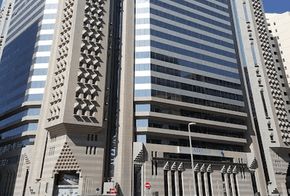DCVG & CIP Surveys Training
- Online (Microsoft Teams)
- +971 562069465
- info@velosiaims.com
-
Velosi is conducting DCVG & CIP Surveys Training online.
The DCVG survey, as an essential component of corrosion control, is the most accurate method available for sizing and locating pipe coating defects. If a coating fails, the pipeline is vulnerable to corrosion. The method relies on measuring voltage gradients in the soil above the protected pipeline, through this extensive survey percent IR values are calculated after the technician has recorded the DCVG measurements and GPS locations. Depending on the magnitude of the percent IR, it is possible to determine whether physical examination, direct assessment, and repair are required, keeping all the essentials at one track.
The Close Interval Potential Survey (CIPS) technique evaluates the effectiveness of cathodic protection along the entire length of the pipeline, not just at the test points, protected pipelines have permanent test points where cables are attached to measure the pipe-to-soil potential. This potential should be cathodic enough to provide adequate corrosion protection necessary.
Velosi has a “learn to ace” approach, our team comprises professional and expert trainers who ensure to enhance your ability and skills through grasping knowledge about the specified course effectively. This training aims to give participants a clear understanding competency regarding corrosion, its leading causes of pipeline failures, and leaks resulting in economic losses, environmental damage, and loss of life. Through this course participants will be proficient enough to carry out specific inspection techniques, CIP & DCVG surveys to assess the effectiveness of the corrosion control methods and to detect coating discontinuities reliably in underground pipelines, adding value to the business.
-
By completing this course, participants will be able to:
- Clearly identify and evaluate flaws in the coating by repairing anomalies following the DCVG survey, fewer voltage escapes, allowing the CP system to function more effectively.
- Efficiently conduct CP surveys along the entire pipeline to ensure a secure environment.
- Carrying a purpose-specific approach.
- Productively operate Velosi’s up-to-date software accordingly.
- View and analyze trends, and highlight any defects.
- Constructively assemble survey equipment and programming and install current interrupters.
- Examine divergent survey styles and techniques for conducting DCVG, CIPS, or a combined DCVG & CIPS survey.
- Efficiently conduct assembling and programming of the survey equipment.
- Portray a much better understanding of competent equipment capabilities.
- Lead efficient combined surveys, gain practical knowledge of survey equipment featuring future prospects.
-
Training will be conducted via Microsoft Team Meeting. Meeting invites will be shared on the day before the first day of training.
-
To Be Discussed
-
- Presentation Slides
- Training Recordings
- Study References
-
Upon successful completion of training, participants will receive a “DCVG & CIP Surveys Professional Course Completion” certificate.
-
This course is appropriate for a wide range of professionals but not limited to:
- Individuals under the role of Corrosion, Integrity, Pipeline and CP Engineers/Managers, and team leaders.
- Inspection & Maintenance Professionals.
- Individuals who wish to enhance their career opportunities in Pipeline Integrity Inspection techniques.
-
Participants can avail a discount of either an early bird or group discount whichever is higher with an additional discount when signing up for 2 or more courses.
Group Discount (same company only)
- 15% Discount for groups of 5 or more
- 10% Discount for groups of 3-4
Bundle Discount
- Sign up for 2 courses and get an extra 10% off
- Sign up for 3 courses and get an extra 15% off
Course Outline
-
- Electrochemistry Fundamentals
- The Corrosion Requirements
- The Pourbaix Diagram
- Electrochemical processes
- Cathodic protection and cathode films
- Coatings, both organic and inorganic
- Coatings and CP association
- CP's limitations
- Current coating methodologies
-
- CIPS Survey Methodologies
- Measurement of the Pipe-to-Soil Potential.
- Close Interval Potential Survey (CIPS) technique
- The CIPS technique's limitations
- Using CIPS and DCVG Techniques Together
-
- Field survey classification
- Techniques for measuring distance
- Data preparation for analysis
- Equipment and record classification
-
- Recognizing CIPS Equipment
- Proper equipment utilization
- Measurement techniques
- Evaluation of the obtained results
-
- Assessment of the Environmental Impact
- Local Statutes and Regulations
- Permitting Safety Requirements



